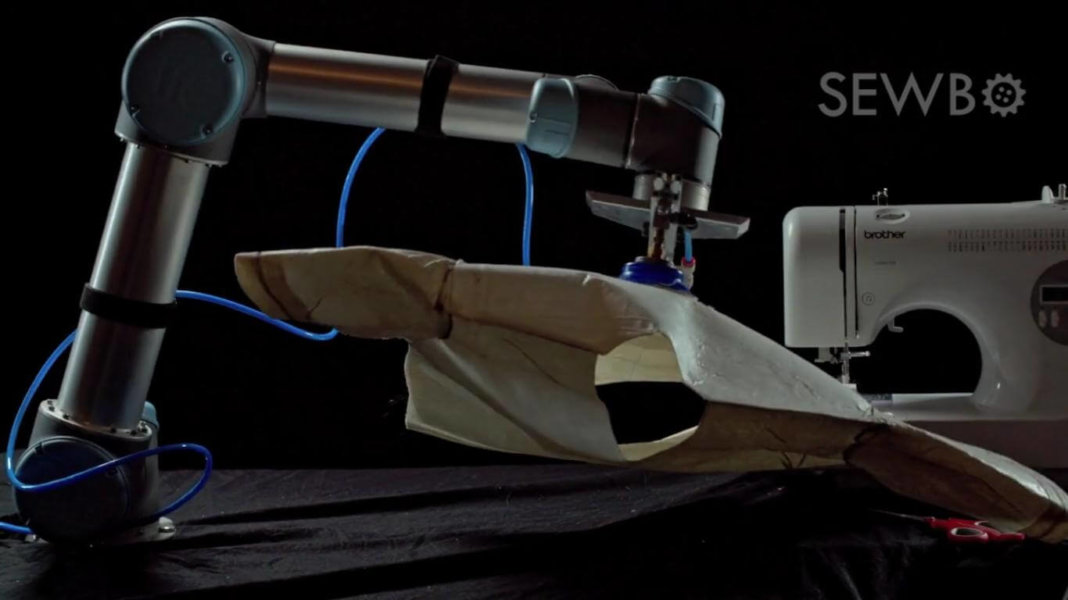Makes sense; if you’re constantly monitoring something, you can tell when it starts to change.
Originally shared by Singularity Hub
Wearable Devices Can Actually Tell When You’re About to Get Sick
Makes sense; if you’re constantly monitoring something, you can tell when it starts to change.
Originally shared by Singularity Hub
Wearable Devices Can Actually Tell When You’re About to Get Sick
Originally shared by HACKADAY
TOBE is a toolkit that enables the user to create Tangible Out-of-Body Experiences, created by [Renaud Gervais] and others and presented at the TEI ’16: Tenth International Conference on Tangible, Embedded, and Embodied Interaction. The goal is to expose…
http://hackaday.com/2017/02/06/tobe-tangible-out-of-body-experience-with-biosignals

This article isn’t just about the robotification of clothing manufacture (though that would be huge); it’s about how invention has, once again, become simple because our platforms are now so powerful and accessible.
Originally shared by Singularity Hub
The Surprisingly Simple Invention That Allows Robots to Make Clothes http://suhub.co/2klu3Sx

When Singularity Hub is taking a skeptical stance on a technology, you know it’s got issues.
Issues that you could write about.
Originally shared by Singularity Hub
Could Predictive Policing Lead to a Real-Life Minority Report? http://suhub.co/2kW78R7

Ethical conundrums. No fun if you’re a scientist, but just what you want if you’re writing stories.
Originally shared by Singularity Hub
The Ethics of Organoids: Scientists Weigh in on New Mini-Organs http://suhub.co/2kbSQuq
The ignorance of crowds is a problem for any approach which tries to use the wisdom of crowds. But there appears to be a way around it – maybe.
Originally shared by Jennifer Ouellette
” instead of trying to figure out what’s right based on the most popular answer, a study led by Prelec and published in Nature on Jan. 25 suggests that a better formula for finding a correct answer in a crowd is to give weight to “surprisingly popular” responses to questions. The idea is that this alternative algorithm would account for the probability that there are some outliers in the crowd who know more than most. This way, mathematical methods start to approach how people seriously solve problems: by seeking out the rare few who are knowledgeable on a topic.” https://qz.com/895735/mit-economists-designed-an-algorithm-to-combat-groupthink/
“Is a functioning democracy too much to ask?”
Originally shared by Deborah Teramis Christian
Great think-piece here from George Monbiot, about concrete ways to fix some fundamental problems in our democracy
(and the UK as well).
“I’ve read dozens of proposals, some transparently awful, others pretty good. The overall result so far is this: there is no magic formula, no single plan that could solve our democratic problems without creating worse ones. But there are plenty of ideas, of which I will mention just a few, that could enhance our politics.”
His ensuing discussion is incisive and concise. I actually think the things he proposes could work, if it were ever actually possible to implement them. Good read.
http://www.monbiot.com/2017/01/26/all-about-that-base/
(Political Discussion Disclaimer: I’m posting this public and leaving comments enabled, for now, in hopes that some constructive conversation may take place around this essay in the comments. Thoughtful and respectful conversation is welcome. Trolls, personal attacks, partisan buffoonery from either end of the spectrum will get the offenders booted out the air lock. Do that shite all you like in your own stream, but keep it out of mine. This is my house.)
I have a random novella, which could expand, that I’m not completely sure what to do with and that is well down my publishing schedule. It’s a bit… different. I might query a couple of these folks with it and see what happens.
Originally shared by Erica Verrillo
Here are seven agents looking for fantasy of all kinds, shapes, and colors. All are from reputable agencies, which means they don’t charge reading fees. (Never pay an agent to read your work!) All have brokered deals with established publishing houses, and all are seeking fresh, new talent. Good luck!
http://publishedtodeath.blogspot.com/2015/11/7-agents-looking-for-fantasy-writers.html
I have some material drafted on using these in fiction.
Originally shared by Winchell Chung
Hmmmm, I wonder if this could be adapted to role-playing games. For rolling up the personality of a non-player character.
From article:
According to psychologists, the extraordinary variety of human personality can be broken down into the so-called ‘Big Five’ personality traits, namely neuroticism (how moody a person is), extraversion (how enthusiastic a person is), openness (how open-minded a person is), agreeableness (a measure of altruism), and conscientiousness (a measure of self-control).
This is of great interest to me, since similar innovations are in the wind in my most recent Gryphon Clerks story.
Originally shared by Singularity Hub
“India may have leapfrogged the US technology industry with simple and practical innovations.”